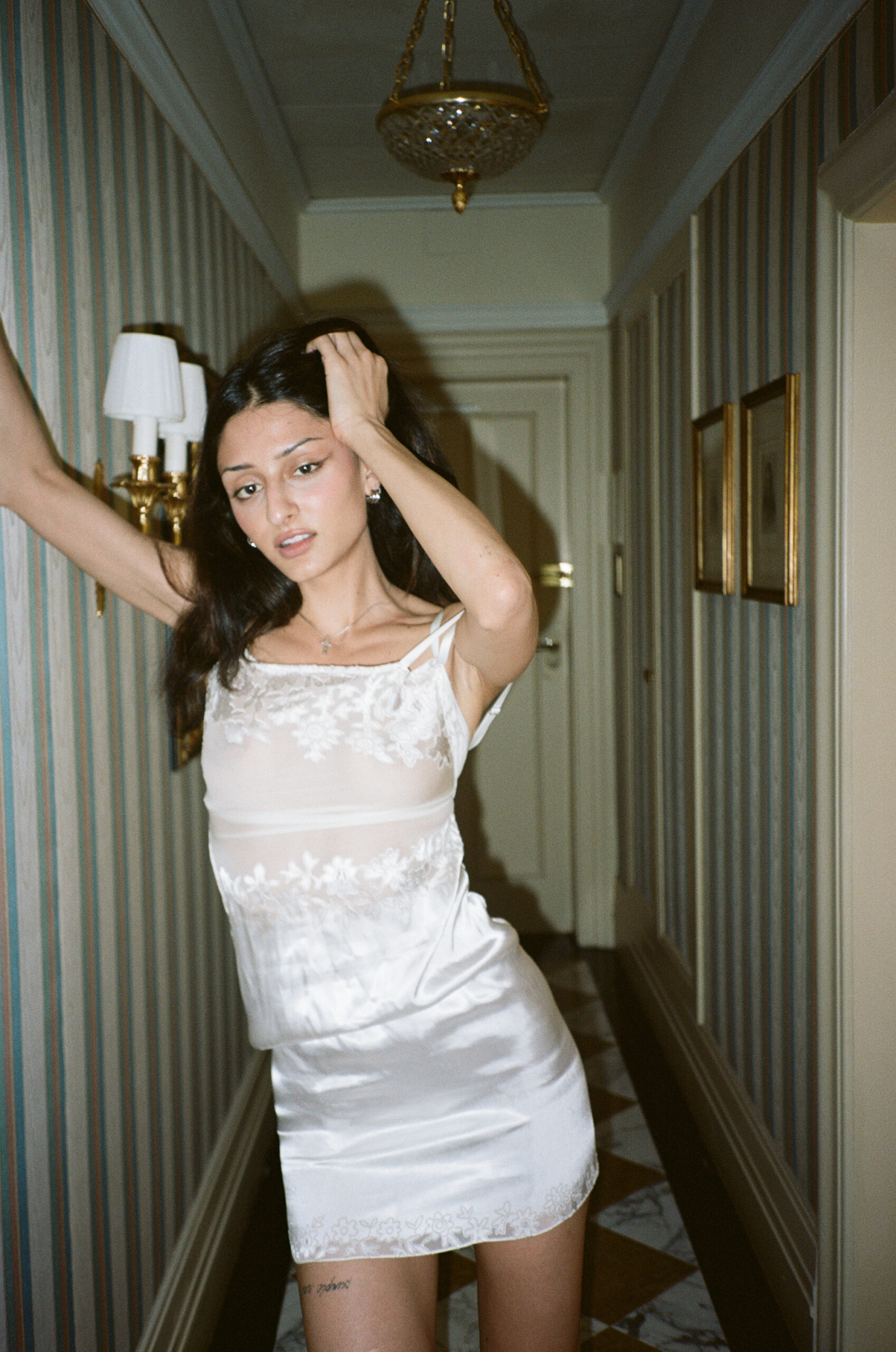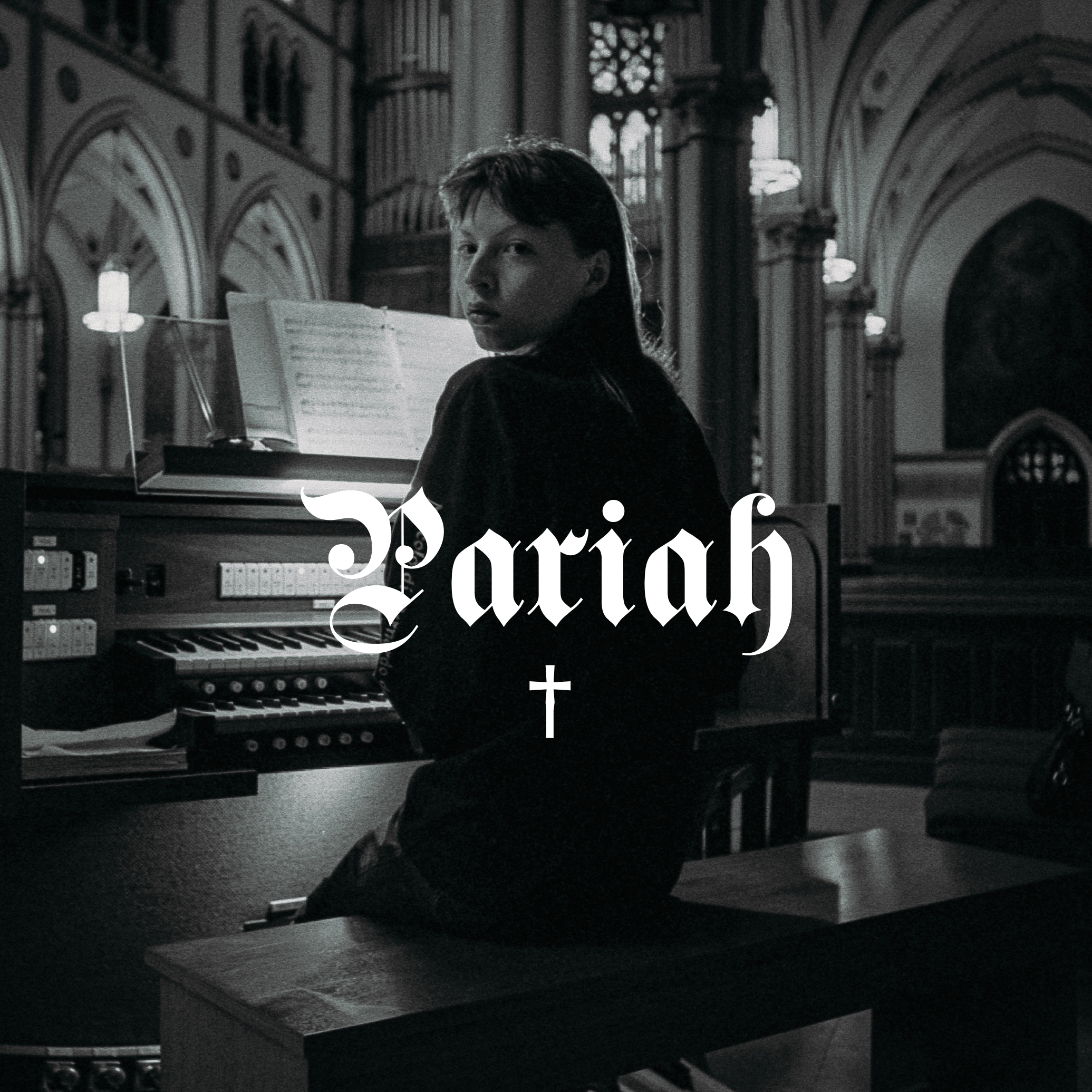Published in Ritsuko 1
December 10, 2024
10:42 a.m., Vienna, AUT
2:42 a.m., Missoula, MT
Midway through the European leg of her tour — a week after her show in London, days before her show in Paris — at her home in Vienna, where it is nearly noon, artist and musician Sofie Royer joins Ryan Simón (me) over Zoom. The desire to interview Sofie came virtually in tandem with my decision to start a music magazine offshoot of American Vulgaria called Ritsuko. I had been aware of Sofie for a couple years, after listening to her guest appearances on Jana’s Hate Fiction and Tony G’s DrugCultGang, which introduced me to her incredible sophomore album Harlequin. I loved Harlequin, and I like her latest album, Young-Girl Forever, even more. In this interview, we talk about the creation of her new album, but not before we get into the ups and downs of Spotify, our shared interest in Proust, some preliminary materials on Young-Girlhood, and the over-intellectualization of art.
Photos by Jasmin Baumgartner
*
Ryan Simón: You’re going to a Spotify Wrapped party? Are you performing?
Sofie Royer: No, I think it’s an event to socialize. I’ve never been to one, so it’s gonna be my first time.
Ryan: Sounds fun. I’m a fan of Spotify Wrapped.
Sofie: Do you feel like it was good this year or do you feel like it’s a little too AI?
Ryan: Uhm… well, I liked mine this year. [Laughs] I wasn’t embarrassed to share it, so I’ll say it was good. I’ve always liked Spotify, to be honest.
Sofie: Yeah, I mean, besides their streaming payouts, I think their UI is great. The playlisting is great. I think the algorithms are pretty good when it comes to music discovery. It kind of reminds me of (I don’t know if you were ever on it but) Last.fm.
Ryan: I knew of it but was never on it.
Sofie: It was a platform that tracked your plays kind of in a similar way to Spotify, but it would update in real time. You would have your stats in real time, and you could connect with other users based upon what they were listening to. It was a great way to discover and find new music, which I feel like Spotify sometimes really nails for me. I feel like I can find songs that are maybe in line with what I listen to. But their payouts… [Laughs] I think their payouts for artists are trash.
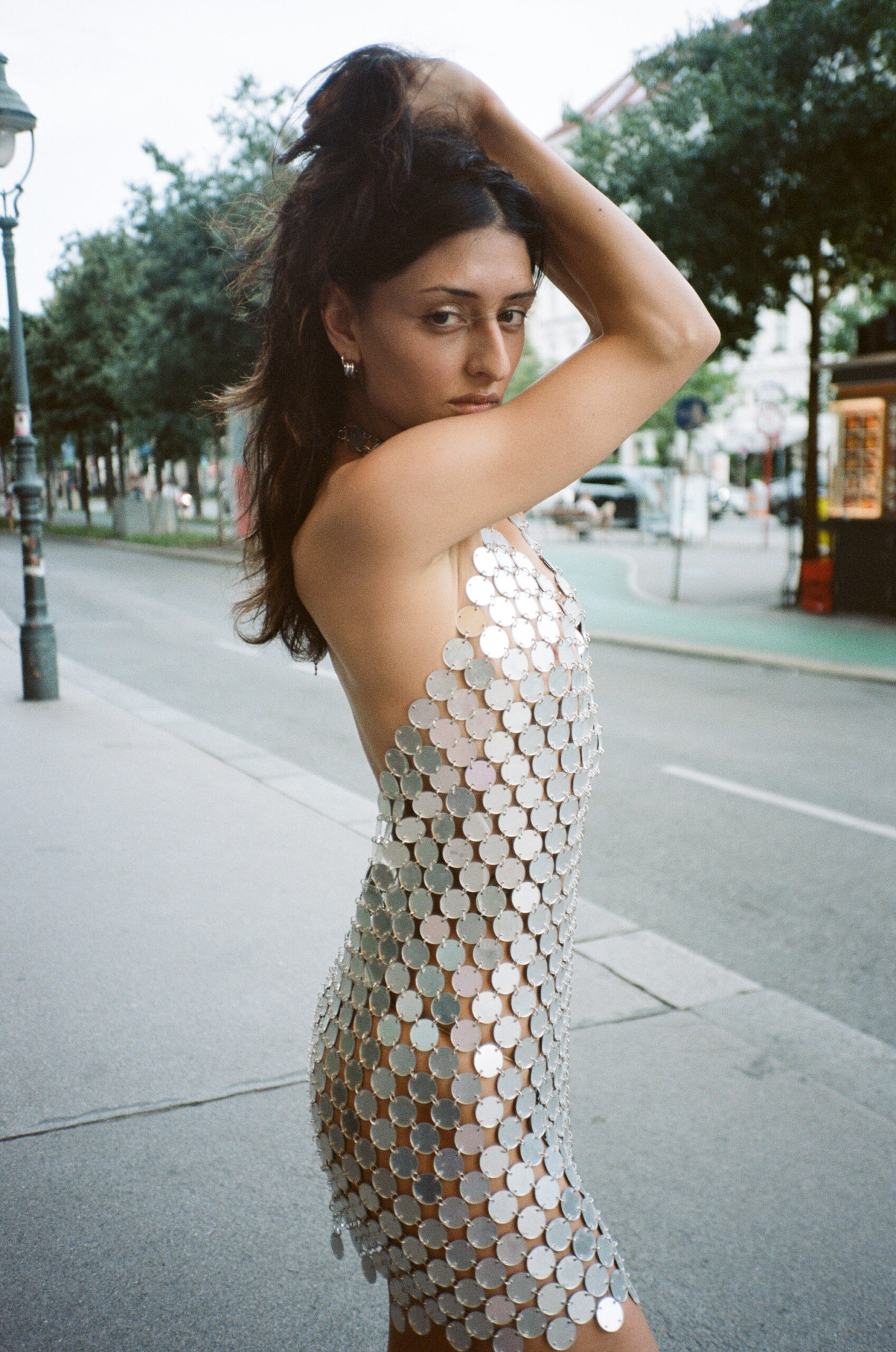
Ryan: Yeah, that’s what I hear. I’ve never dealt with that side of streaming, just the consumer side of, you know, getting all of everyone’s music basically for free… But your music — actually, before we get into your new album: I was reading your interview with Nuda from back in February, and you mentioned your reading habits and your interest in diaristic novels. You mentioned Proust, which I latched onto because I’m currently reading him. Just got to his second-to-last novel.
Sofie: Oh good!
Ryan: So, I’m currently consumed with him. When did you read Proust?
Sofie: In high school. I think I was 14. It’s been a while.
Ryan: Wow. You feel you got a lot out of it then? They say you have to wait to read Proust for when you’re older, but I kind of wish I read it when I was younger.
Sofie: I don’t know. I think if you’re a sad, mopey, teenage girl, Proust makes for great literature. But you know what, I probably would’ve understood more if I read it now. I remember it was the first book I read that was written from a diaristic perspective, so I was like, Oh, people can do this? And they can do this for this long? You know? It was like my Harry Potter because there were so many volumes and they were so thick, and I was like, Ah, there’s more! Just more and more to get through. I was just such an avid reader because I didn’t grow up with a TV, and it was my only form of imaginative escapism. There’s a lot there. Proust gives you a lot.
Ryan: It’s a ton. I wouldn’t have been able to handle it that young. It’s funny reading it now though because it’s almost embarrassing how much of young Proust’s — or the “narrator,” or whatever — how much of his young emotions and his jealous insecurities I’ve identified in my younger self. His anxieties towards his girlfriend Albertine and all that. It probably would’ve helped me to read this when I was younger instead of… well, Harry Potter. Harry Potter was my Harry Potter back then. But speaking of Albertine: I was reading a wiki summary of Tiqqun’s Theory of the Young-Girl, the text that inspired your album’s title, and I saw that the character of Albertine was a core figure in their theories on the Young-Girl concept.
Sofie: So, she can be applied to the concept of the Young-Girl. But many are. The point of Tiqqun’s text was kind of to highlight a universality, I think. Which also isn’t to say that the Tiqqun text isn’t without criticism. You know? Like if they so staunchly criticize this form, then why call it “girl,” you know? It kind of proves its own point, in a sense.
Ryan: When did Tiqqun’s Young-Girl concept take root in this album?
Sofie: It joined fairly late, to be honest with you. I finished the record, and I was kind of searching for an album title. I was on tour with my friend Lewis OfMan, and I had just simultaneously to that had spent the last six years studying psychology, philosophy, and English at the University of Vienna, so the text, it had come recommended to me a few times by this point. I was like, Agh, I’m not going to read theory in my free time while I’m studying. Are you guys crazy? I think I overestimated the book though. I overestimated its intellectual prowess because it’s actually incredibly pop. You know, it has all the different sentences, all the different fonts. I could’ve easily just been like, “Oh yeah, this is a really fun read…” But I was reading while on the road with Lewis. It was a good book that I was able to put down here and there. I really enjoyed it. I don’t know if I agreed with all of it, but I really, really enjoyed it. I like incorporating a reference in whatever I’m doing, just because I enjoy the idea of giving a nod to something. [Laughs] I don’t know. There are references littered all throughout my stuff, but I always also try to make sure that it doesn’t hinge on the reference. Okay, so like whatever the piece is, or whatever the song is, it can make sense without you needing to understand the meaning. Like the title Young-Girl Forever. Whatever. Cool if people read the text, but it’s also a catchy title in its own right. I don’t like the over-intellectualization of things. I don’t like it in art. I don’t like going to a gallery and seeing like a nail on the floor and having to read a big press text about it.
Ryan: [Laughs] Sure, sure.
Sofie: If things work for me personally on an aesthetic level, then the referentiality is a bonus, but it’s not what constitutes the work.
Ryan: I noted that with your Harlequin album, how you play with the “themes” and references kind of fast and loose without belaboring any point or specific meaning. Yet, there’s a lot of layers and nuance to that album’s aesthetics. Same with Young-Girl, which the core sentiment there seems to relate to this condition of being perma-young, of aging without achieving any real sense of adulthood.
Sofie: I was reading a substack yesterday by somebody who wrote a review of the record, and the person actually took the one press quote that I feel like hits the nail on the head, which is that I do feel like I’m permanently stuck in some kind of coming-of-age where you keep waiting for that moment of like, Oh, this is it. Now, I’m an adult. But I actually felt more adult in my early 20s than I do now. The themes I’m trying to explore are like age is something arbitrary and… how do I put this… almost like transient. That was what I was going for. Does that make sense?
Ryan: Totally. I can relate to that. The Young-Girl, the perma-young thing — that all feels connected to your last album. Pierrot, the sad-clown archetype of Harlequin, I saw you linked to Holden Caulfield in I think another interview, which just expanded my mind when I thought about it.
Sofie: Yeah, Holden Caulfield and Salinger (he’s a big reference) and Arthur Schnitzler, who’s a playwright and author — they nailed a lot of these themes.
Ryan: Caulfield, with his young disillusionment with adulthood, being linked to Pierrot, and then the sort of sad-clown condition of your Young-Girl. It all felt connected in my head the more I thought about it. Do you feel like there’s a narrative throughline between your albums at this point? Or is each one a closed set of ideas?
Sofie: I don’t know. That’s a really hard question to answer because I think invariably anything you do is never going to be a closed set of ideas. At least with making music, there’s definitely been development with all the records. You know what I mean? But to be very honest, I don’t have some big concept going into the records at all. They’re not conceptually as thought out as the music. The concept is something I think people like to — especially in interviews [laughs] — like to dig into, but ultimately none of these are concept albums or anything, you know. The records just have a title and people enjoy intellectualizing them, but really for me it’s about the music. If anything, they’re kind of like prompts for people to add their own rhyme and reason to it. I’m more of the doctrine that people, when they listen to music, should have their own interpretation of what’s going on.
Ryan: That’s cool, I like that. Well, the production of the music itself on this one does seem bigger than previous records. You posted a clip of “I Forget (I’m So Young)” on Instagram that I think was the first soundbite I heard from this album.
Sofie: Yeah, that was the first single that came out.
Ryan: Okay, yes — hearing the bells drop at the end of that song’s chorus, it immediately struck me as bolder and “bigger”-sounding than your last albums.
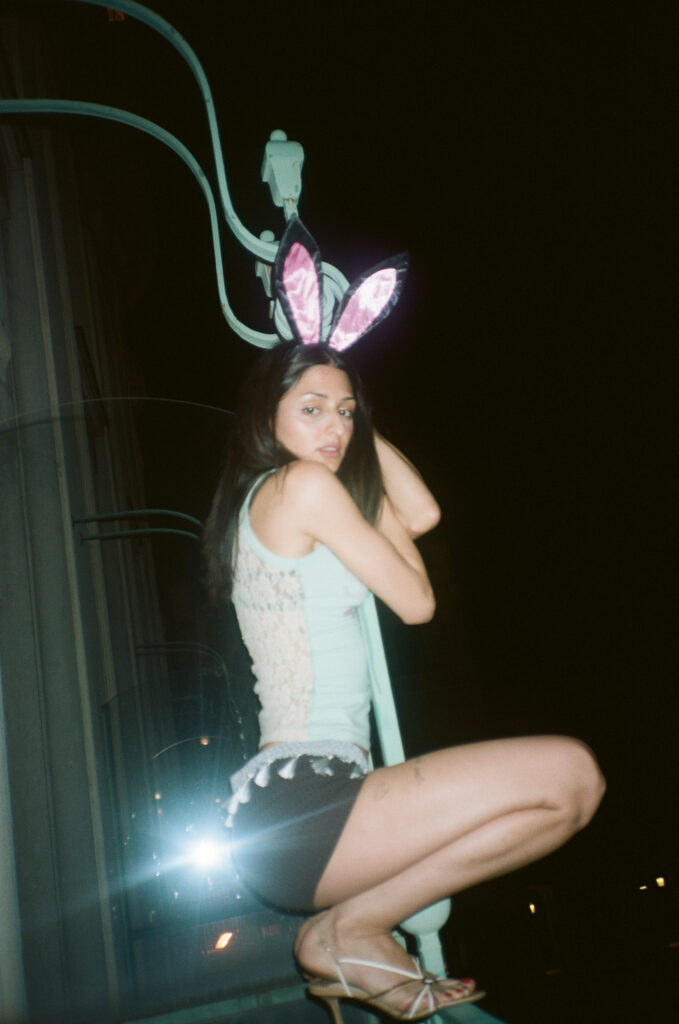
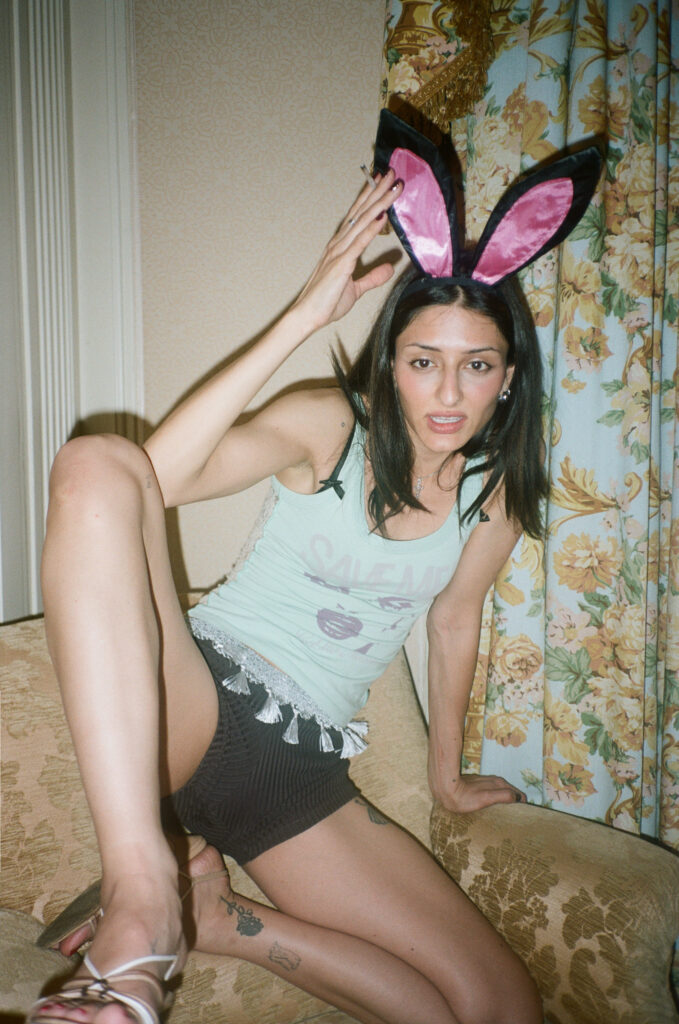
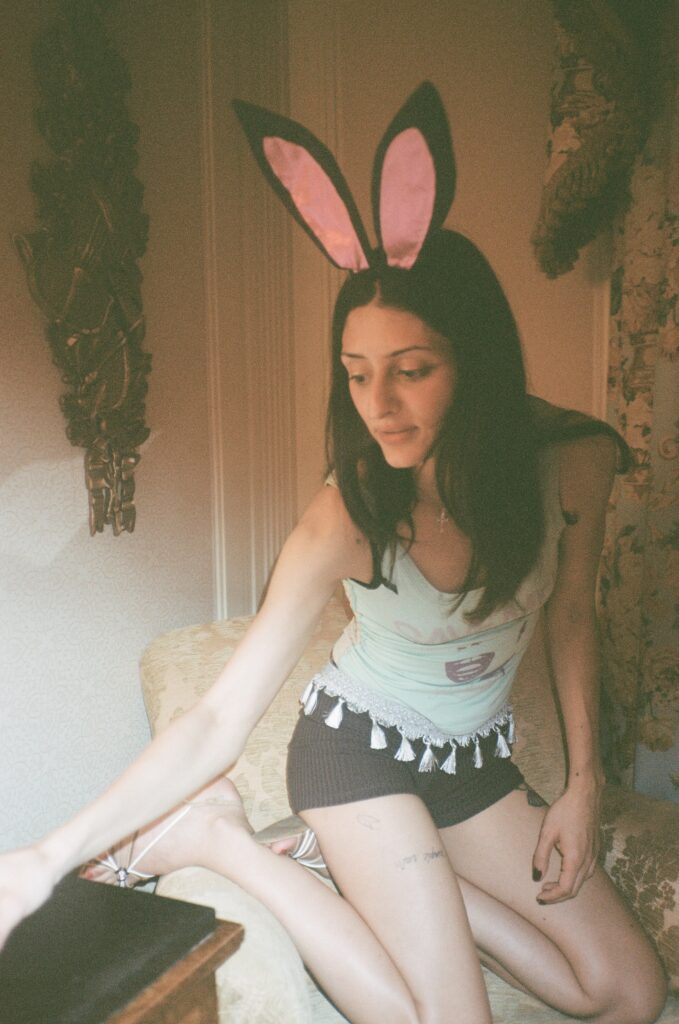
Sofie: For the first two records, I got a lot of “This is a great lo-fi record,” “great bedroom pop record,” and maybe it sounded that way, but it wasn’t really my intention necessarily — although I do make a lot the music in my own home. I think I wanted to just make more of a polished record, though some people don’t see it as such either [laughs]. So, who knows.
Ryan: Really?
Sofie: Yeah, I think for some people, there’s still a lot of liberties taken in production. Like it’s not a mainstream pop production, but I definitely wanted to have an accessible record. I don’t mean to be subversive in music. Maybe that’s my classical background, but I think there’s so much subversion that can happen within a traditional structure. Also, it’s my financial livelihood, so… so I’m not like Arthur Russell over here. You know what I mean? For myself, I have things I want to be able to do with my music. My big goal for this one was to have fun performing on stage. A lot of my first two records were slower in part, a lot more balladic. That was something I wanted to move away from, so I could enjoy myself more when playing live. Like I could dance, I could have a good time. It was fairly self-serving in that regard.
Ryan: I’m always curious where musicians envision their music being played as they’re making it. So, for this album, you had live settings in mind?
Sofie: Yeah, I mean, to promote the record, that’s what I have to do. I definitely did consider it a lot more. I didn’t realize what a big aspect the part of touring has to having a financially successful record. My first record came out in 2020, during the pandemic, so I didn’t even tour my first project. I didn’t even know I would. Like I’m not a singer, you know? I didn’t realize that was something I would be doing, or that it would even do well enough for me to be able to perform live. So, I think for this one, that definitely factored into it.
Ryan: I remember back during Harlequin reading how your shows were like cabaret performances, like these really fun, theatrical productions.
Sofie: Oh yeah, I would dress the band and stuff, but now it’s a lot more casual and relaxed. It’s more about just having the music at the forefront and less about having a theatrical spectacle. And it’s easier, [laughs] maybe. But also you get tired of stuff, you know? It’s cool while you’re promoting the record, and then you’re like, Okay, time for something new.
Ryan: Yeah, just dressing as a clown for the rest of your life… When did the album feel finished then?
Sofie: It happened really fast. I think the first few songs I wrote in December were “I Forget” and “Sebastian in Dreams” and then the rest I wrote and produced January, February, mid-March, and then by April I already was working on the mix, and I think our deadline was end of April. So, it was a fast one. All of the songs were made with a fairly short time distance to each other, which wasn’t really the fact for my first two. And the turnaround to release was pretty fast as well. That definitely makes the songs still new and exciting for me, so I’m having a great time playing them live. It’s so fun.
Ryan: Do you have a favorite song?
Sofie: At the moment, it’s “Lights out baby, entropy!”
Ryan: Nice. That’s mine too.
Sofie: But I don’t have a full favorite. I really like “Young-Girl (Illusion).” I like “Sebastian in Dreams.” I love “I Forget”… Yeah, I don’t know. That’s a hard question.
Ryan: On “Lights out,” is that electric violin on the intro? Or guitar?
Sofie: It’s violin layered on guitar.
Ryan: I see. That threw me for a loop when I saw you playing violin on the “Babydoll” music video. I assumed that was all guitar.
Sofie: My guitarist and I play both of the solos together onstage. It’s pretty cool. It’s really fun. Like the live show is really something else. It’s just been really fun musically.
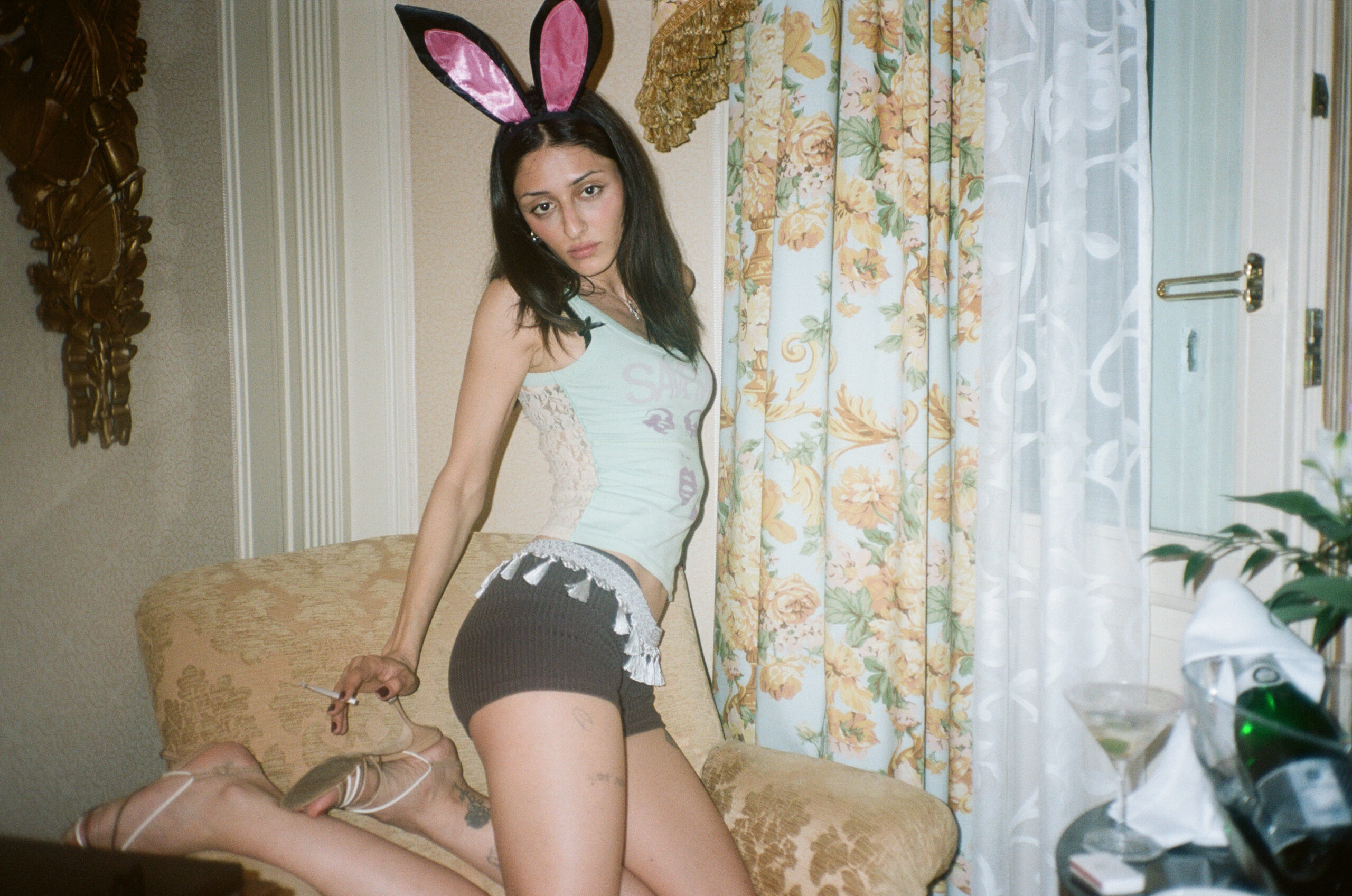
Ryan: I like the guitar a lot. That specific sound isn’t really there in your last two records. It kind of sounds like ‘60s, ‘70s, ‘80s rock guitar music, but it’s also its own thing, maybe due to the violin. That goes for a lot of your sound really — some of it feels semi-referential, but overall it doesn’t seem like you’re making any overt references or callbacks in the music itself. More so that you’re just putting together something that you enjoy, that you think is good.
Sofie: That’s another critique I often get, like, “Oh, it sounds like the ‘60s or the ‘70s or the ‘80s.” I don’t deliberately mean to reference a time or a genre. I’m just kind of making music with sounds I like [laughs]. Production-wise, it’s really hard for me to move forward unless I’ve found exactly the sound that I want to use later. I know some people are really good when they produce to just use placeholders, to be like, I’ll do this synth line and I’ll replay it with a different instrument later. I really, really struggle with that. I’m kind of a sound purist. I really need the sound to be as close as I want it to sound like on the final recording in order for me to move forward in the rest of the production process. That’s my number one. Maybe drums are the only thing I can do a compromise on, like I’ll have a loop that I’ll use to arrange and write the rest of the song to. But everything else is really difficult.
Ryan: Do you typically start with the instrumentals?
Sofie: It depends. I wish I could say there’s one formula. Most of the songs previously I would write on piano while singing. That’s kind of how I would figure out the chords and the arrangements. But then for this record, I challenged myself to do that with other instruments. I don’t know if you noticed but there’s a lot of double bass intros. Usually, I would start with just the bass, which is not an instrument I normally play by any means as much as the piano, but with this I was like, Let me just write a song to the bassline first. I don’t know, I was just getting into playing the bass more. Same goes for the guitar. “Sebastian in Dreams” and “Saturdee Nite” I wrote entirely on guitar and singing. That’s it. There’s no synth chords or anything like that in there, which is otherwise very typical for my process.
Ryan: What comes next? Are you already working on the next album?
Sofie: Yeah, I love making music. I think the two biggest aspects that are the most fun for me are making a record and then performing it. It’s a little vague what’s gonna happen. This is my last record contractually with Stones Throw, so as of right now I’m technically a free agent. I don’t really know what that necessarily means. I don’t know if I’m gonna renew — and under what conditions. The logistics side of it feels a little up in the air and scary for me right now. But I’m excited to make more music.


